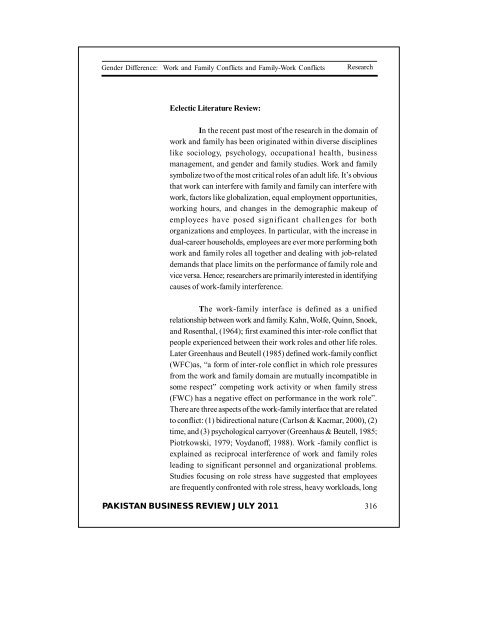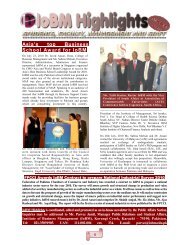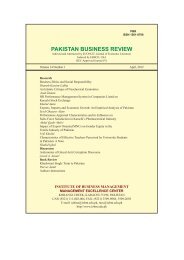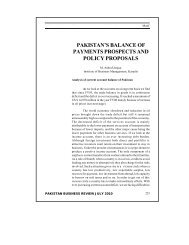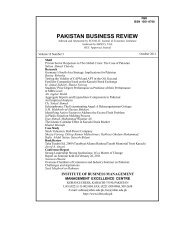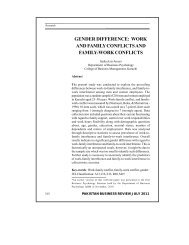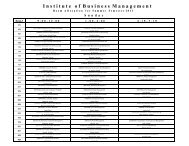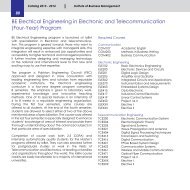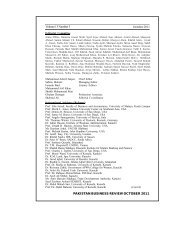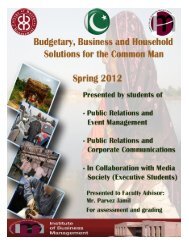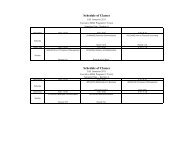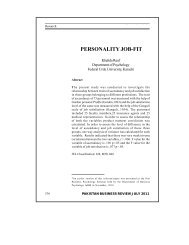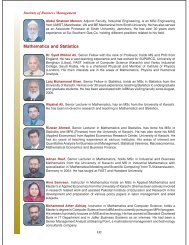PAKISTAN BUSINESS REVIEW - Institute of Business Management
PAKISTAN BUSINESS REVIEW - Institute of Business Management
PAKISTAN BUSINESS REVIEW - Institute of Business Management
You also want an ePaper? Increase the reach of your titles
YUMPU automatically turns print PDFs into web optimized ePapers that Google loves.
Gender Difference: Work and Family Conflicts and Family-Work Conflicts<br />
Research<br />
Eclectic Literature Review:<br />
In the recent past most <strong>of</strong> the research in the domain <strong>of</strong><br />
work and family has been originated within diverse disciplines<br />
like sociology, psychology, occupational health, business<br />
management, and gender and family studies. Work and family<br />
symbolize two <strong>of</strong> the most critical roles <strong>of</strong> an adult life. It’s obvious<br />
that work can interfere with family and family can interfere with<br />
work, factors like globalization, equal employment opportunities,<br />
working hours, and changes in the demographic makeup <strong>of</strong><br />
employees have posed significant challenges for both<br />
organizations and employees. In particular, with the increase in<br />
dual-career households, employees are ever more performing both<br />
work and family roles all together and dealing with job-related<br />
demands that place limits on the performance <strong>of</strong> family role and<br />
vice versa. Hence; researchers are primarily interested in identifying<br />
causes <strong>of</strong> work-family interference.<br />
The work-family interface is defined as a unified<br />
relationship between work and family. Kahn, Wolfe, Quinn, Snoek,<br />
and Rosenthal, (1964); first examined this inter-role conflict that<br />
people experienced between their work roles and other life roles.<br />
Later Greenhaus and Beutell (1985) defined work-family conflict<br />
(WFC)as, “a form <strong>of</strong> inter-role conflict in which role pressures<br />
from the work and family domain are mutually incompatible in<br />
some respect” competing work activity or when family stress<br />
(FWC) has a negative effect on performance in the work role”.<br />
There are three aspects <strong>of</strong> the work-family interface that are related<br />
to conflict: (1) bidirectional nature (Carlson & Kacmar, 2000), (2)<br />
time, and (3) psychological carryover (Greenhaus & Beutell, 1985;<br />
Piotrkowski, 1979; Voydan<strong>of</strong>f, 1988). Work -family conflict is<br />
explained as reciprocal interference <strong>of</strong> work and family roles<br />
leading to significant personnel and organizational problems.<br />
Studies focusing on role stress have suggested that employees<br />
are frequently confronted with role stress, heavy workloads, long<br />
<strong>PAKISTAN</strong> <strong>BUSINESS</strong> <strong>REVIEW</strong> JULY 2011<br />
316


